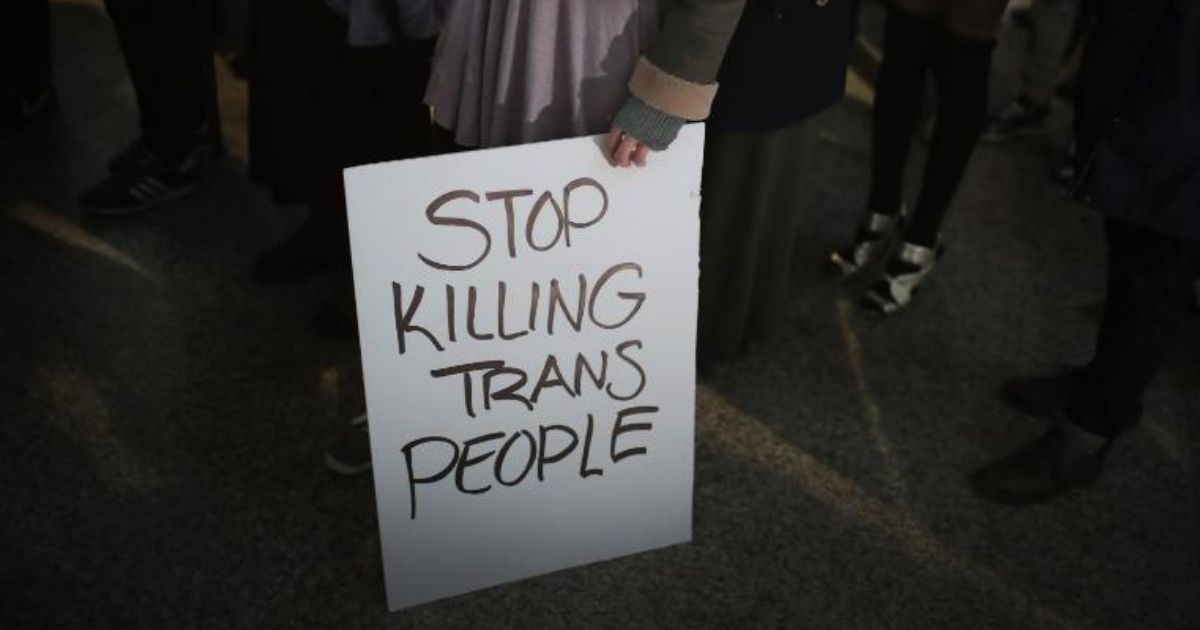A transgender woman who was incarcerated in Georgia filed a lawsuit alleging that officials not only did not protect her from sexual assault and harm but inflicted it on her themselves.
On Monday, Ashley Diamond filed the lawsuit against several employees of the Georgia Department of Corrections and its facilities, accusing the defendants of denying her treatments deemed medically necessary and housing her in a men’s prison despite being aware that it posed an increased risk to her safety.
Because of her housing situation, the lawsuit alleges, Diamond has repeatedly been the victim of violent yet foreseeable sexual assaults.
“Being a woman in a men’s prison is a nightmare,” Diamond said in a news release Monday. “I’ve been stripped of my identity. I never feel safe. Never. I experience sexual harassment on a daily basis, and the fear of sexual assault is always a looming thought. I’m bringing this lawsuit to bring about change on behalf of a community that deserves the inherent dignity to simply exist.”
According to the Center for Constitutional Rights, in 2011, Diamond was arrested for pawning a saw she had stolen, charged with burglary, and sentenced to 10 years in prison.
The GDC said it has not received a copy of the lawsuit and does not comment on any pending litigation.
In the 12 months, Diamond was in GDC custody since 2019, she has been assaulted 14 times, the lawsuit filed on her behalf by the Center for Constitutional Rights and the Southern Poverty Law Center says.
“Ms. Diamond repeatedly notified GDC officials … of her sexual assaults and begged to be transferred to a safer facility.
Rather than heed her urgent requests for safe housing, GDC officials instructed Ms. Diamond to ‘guard her booty’ and ‘be prepared to fight,'” according to the lawsuit. “They also openly acknowledged that GDC was unable to keep Ms.
Diamond safe so long as she remained a transgender woman housed in men’s facilities.”
Moreover, the lawsuit says Diamond is housed in a cell that does not lock to prevent intruders, and it describes several instances of abuse during her time in GDC custody, including one where an inmate hid waiting for her in a utility closet to assault her, and a corrections officer allegedly admitted she had been warned that the incarcerated man had been hiding there before the attack, the lawsuit said.
Several sexual attacks Diamond experienced left her injured and bleeding.
According to the documents, Diamond and three other transgender inmates approached the same officer to report that gang members threatened to kill Diamond, but their concerns were ignored.
Three times over the course of 2019, Diamond alleges she was assaulted by staff members, including one employee who allegedly locked her in a room on two occasions and allegedly sexually harassed her for hours.
This is not the first time Diamond has expressed concern about GDC’s treatment of her as a transgender woman.
“The abuse and neglect that Ms. Diamond has experienced are all the more egregious because Defendants have willfully ignored a prior judicial finding that the very same conduct Defendants repeat qualifies as cruel and unusual punishment under the Eighth Amendment and a violation of clearly established constitutional rights,” the lawsuit states.
In 2015, Diamond filed her first lawsuit against the department while incarcerated. The case was ultimately settled, but during litigation, the court ruled that it was unconstitutional for the department to fail to protect her.
Additionally, the ruling found that it was medically necessary for the department to provide Diamond with continued hormone therapy to treat gender dysphoria, a condition recognized by the American Psychiatric Association. The decision made changes to medical policy for transgender people in the GDC.
Later in 2015, Diamond was released on parole and returned to the department of corrections in 2019 for a “technical parole violation,” the release said.
Despite a GDC psychologist concluding that denying her treatments would jeopardize Diamond’s physical and psychological well-being, she was again denied hormone therapy, resulting in distress, self-harm and castration attempts, and suicide attempts.
Diamond has been undergoing hormone therapy for 17 years, her attorneys said. Moreover, her suicidal ideation, self-harm, and sexual assault experiences have resulted in PTSD.
“Being in prison and being brutally raped seven times has left me mentally scarred,” Diamond said. “The fabric of trust that I have for authorities has been broken, especially with those who the state has designated as my caretakers.”
The lawsuit is calling for nominal damages, compensatory damages, and punitive damages against the defendants.
“My hope is that the future is brighter for people like me,” Diamond said in the release. “I hope this lawsuit forever changes the way transgender people in Georgia are treated. This fight is not just my fight, it’s our fight.”






